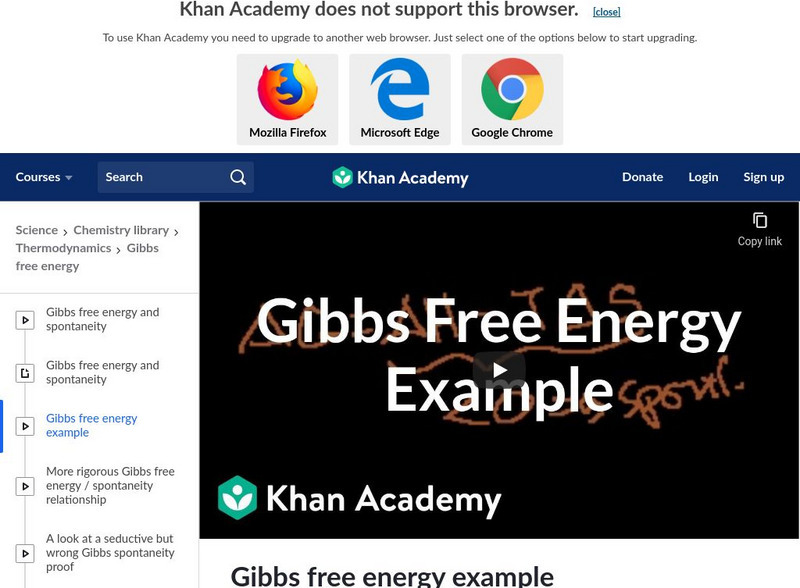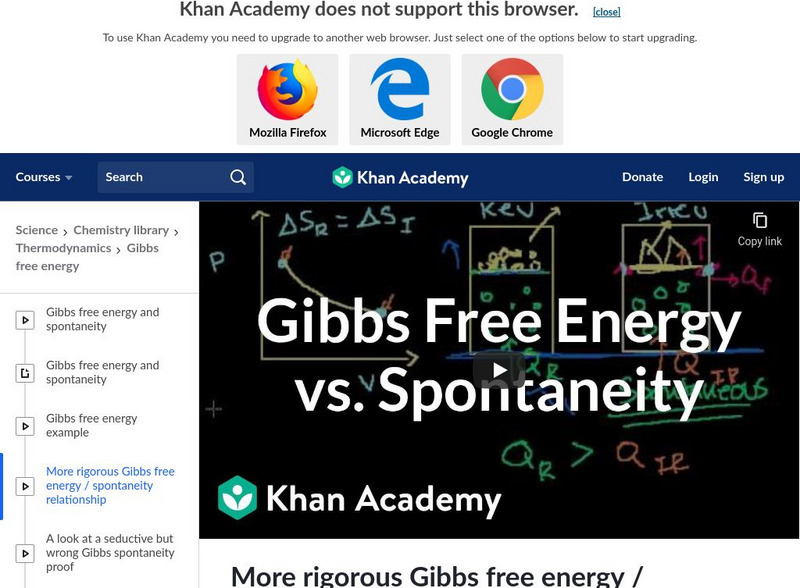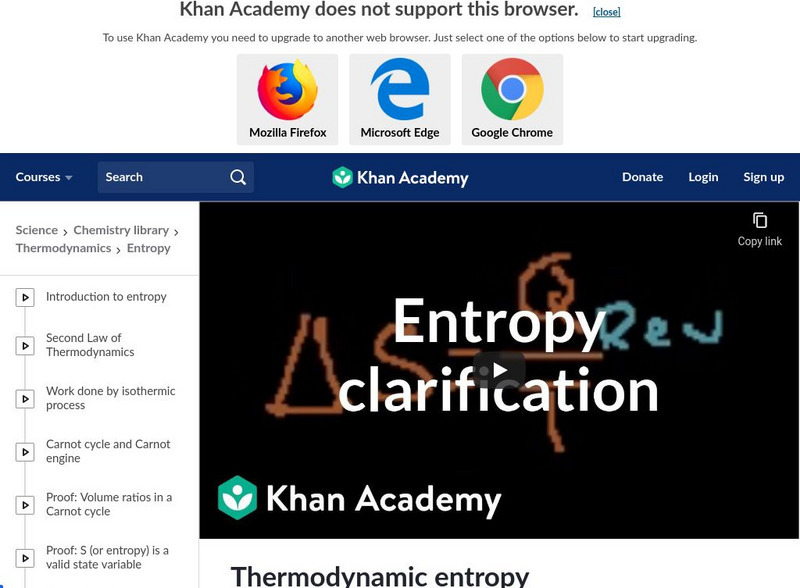MinutePhysics
What Is the Purpose of Life? (Big Picture Ep. 5/5)
In the eyes of a physicist, the purpose of life is to continue the mission of the sun. An engaging lesson discusses the increasing entropy levels of energy that originates at the sun. As life forms use that energy, entropy rises...
MinutePhysics
How Entropy Powers the Earth (Big Picture Ep. 4/5)
Energy can be either useful or useless, depending on you look at it! A video lesson examines how entropy works with the Law of Conservation of Energy. Scholars learn how Earth receives and uses photons from the sun in a state of low...
MinutePhysics
The Arrow of Time feat. Sean Carroll
Time isn't considered a property of physics, but rather a feature. Sean Carroll explains how we remember the past but not the future; yet we still consider time a dimension in physics. The video offers a brief overview of entropy and the...
Crash Course
Entropy: Embrace the Chaos!
Chemistry makes it seem that everything has its place and behaves according to different laws. Not always true! Disorder and chaos can and do happen in chemistry; scientists call this disorder entropy. Learn about entropy and its...
Be Smart
The Amazing Science of… DUST?
Why do we bother to dust when more will start to land as soon as we get rid of it? What is dust made of and why won't it ever go away? The video answers these questions and more.
Be Smart
Why Does Time Go Forward?
Has your class ever wondered why time always progresses in a forward direction and why we cannot travel backward? Learners view this short video segment to explore the concept of entropy and its relevance to time in relation to their...
TED-Ed
What Triggers a Chemical Reaction?
Chemical reactions are happening all around us every second of every day, but what exactly causes these changes to occur? Using easy-to-understand analogies, this video explains how the concepts of enthalpy and entropy determine the ways...
TED-Ed
At What Moment Are You Dead?
When is a person no longer living? This question has been puzzled over for millennia, but is there a clear answer? Watch as this video examines the biological line separating life and death.
TED-Ed
The Chemistry of Cold Packs
How can it take water hours to freeze, but a cold pack can go from room temperature to near freezing in an matter of moments? Find out with this short video that explores the endothermic reaction that make these modern marvels possible.
Educreations
Entropy & Free Energy
An understanding of chemical reactions really boils down to two concepts: entropy and enthalpy. Follow along with this instructional video as it explains how these two principles are used to calculate Gibbs free-energy which...
Curated OER
STEMbite: Entropy of the Playroom
Here is a darling demonstration of the second law of thermodynamics. Entropy has increased in a toddler's playroom as he removed toys and books off shelves and left them on the floor when he moved to the next activity. Yes, microscopic...
Khan Academy
Khan Academy: Energy and Enzymes: Gibbs Free Energy and Spontaneous Reactions
This video lecture will show use how to use the Gibbs Free Energy equation to predict whether a reaction is going be spontaneous or not. [9:17]
Khan Academy
Khan Academy: Second Law of Thermodynamics
An explanation of the Second Law of Thermodynamics. [10:22]
Khan Academy
Khan Academy: Proof: S (Or Entropy) Is a Valid State Variable
An explanation to prove that entropy, labeled as S, is a valid state variable. [15:38]
Khan Academy
Khan Academy: Gibbs Free Energy and Spontaneity
Introduction to Gibbs free energy. Includes information about the relationship between spontaneity and entropy, enthalpy, and temperature. [17:40]
Khan Academy
Khan Academy: Gibbs Free Energy Example
Calculating change in Gibb's free energy to identify whether or not a reaction is spontaneous. [9:56]
Khan Academy
Khan Academy: More Rigorous Gibbs Free Energy / Spontaneity Relationship
Extended explanation of the effect of a negative charge on Gibbs Free Energy. [13:56]
Khan Academy
Khan Academy: A Look Ar a Seductive but Wrong Gibbs/spontaneity Proof
An explanation why many textbooks are incorrect in their details about the "proof" of the relation between Gibbs free energy state and spontaneity. [6:41]
Khan Academy
Khan Academy: Changes in Free Energy and the Reaction Quotient
An explanation of Gibbs Free Energy and the reaction quotient under conditions that are not standard. [15:47]
Khan Academy
Khan Academy: 2015 Ap Chemistry Free Response 2 C
Explanation of Gibbs free energy and equilibrium constant of dehydration. Example is from the 2015 AP chemistry test. [12:23]
Khan Academy
Khan Academy: Biology: Energy and Enzymes: Introduction to Entropy
Get an introduction to entropy in this video. [7:26]
Khan Academy
Khan Academy: Biology: Energy and Enzymes: Why Heat Increases Entropy
Do you know why heat increases entropy? In this video, students can explore entropy and its ability to do work. [7:01]
Khan Academy
Khan Academy: Thermodynamic Entropy Definition Clarification
Using a reversible system to clarify the definition of entropy in thermodynamics. [15:38]
Khan Academy
Khan Academy: Introduction to Entropy
An introduction to entropy and its relationships to various states for a system. [7:27]























